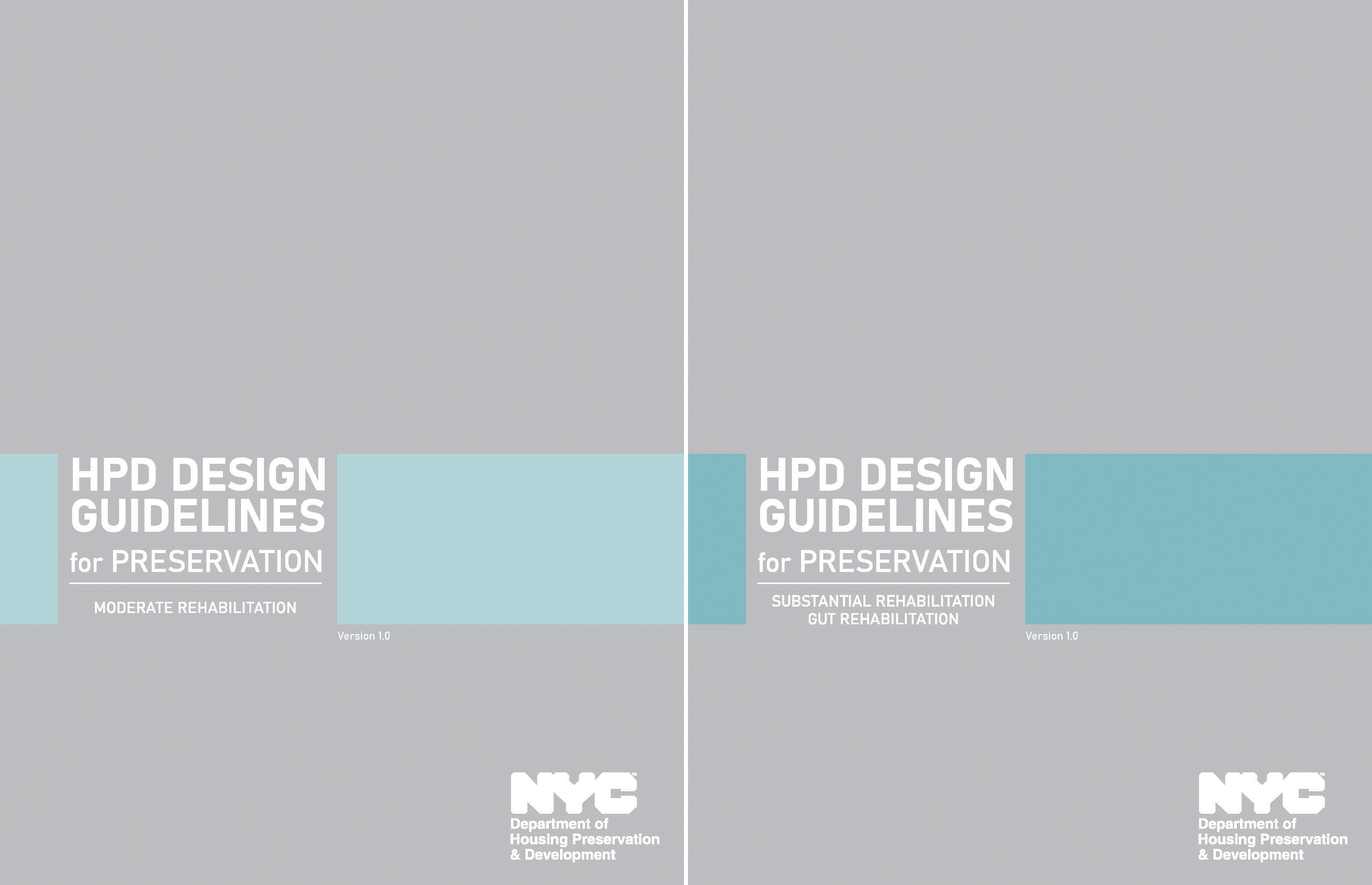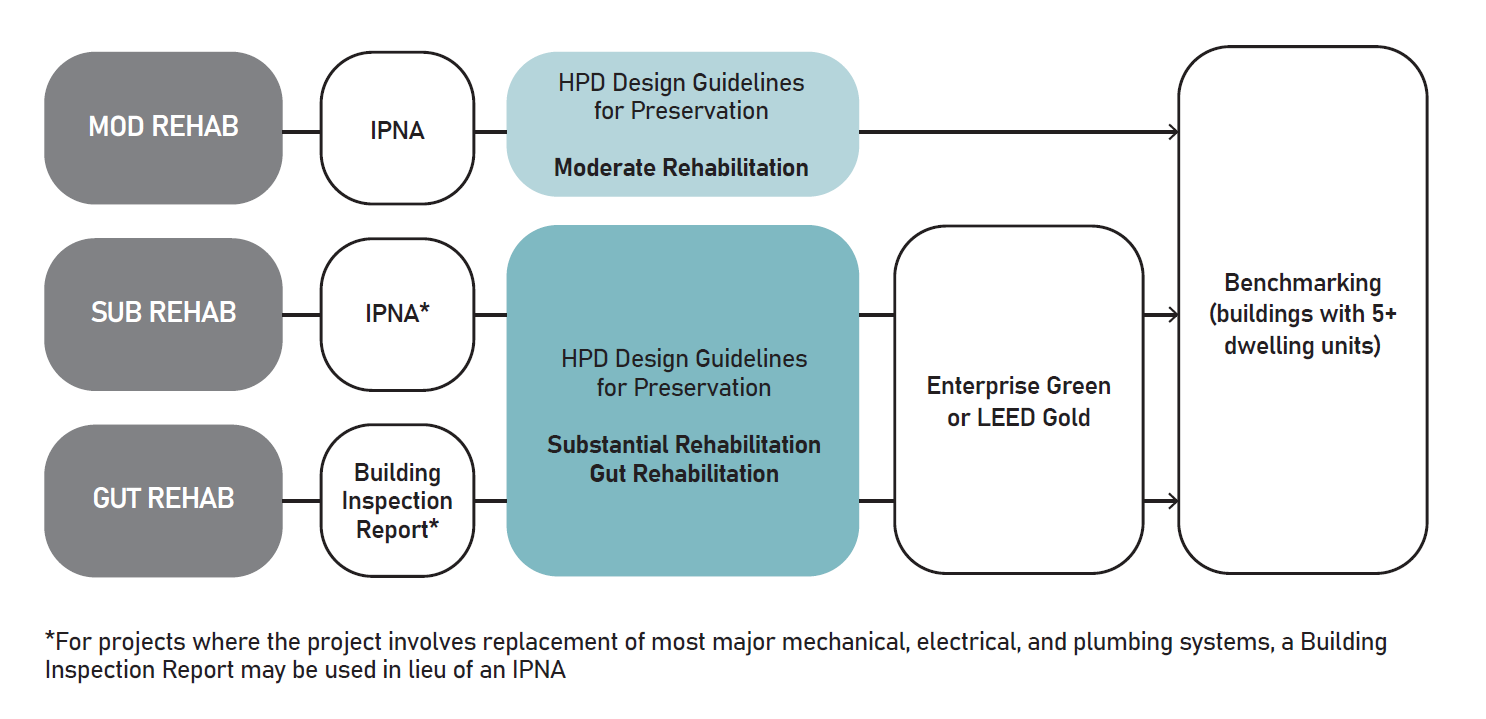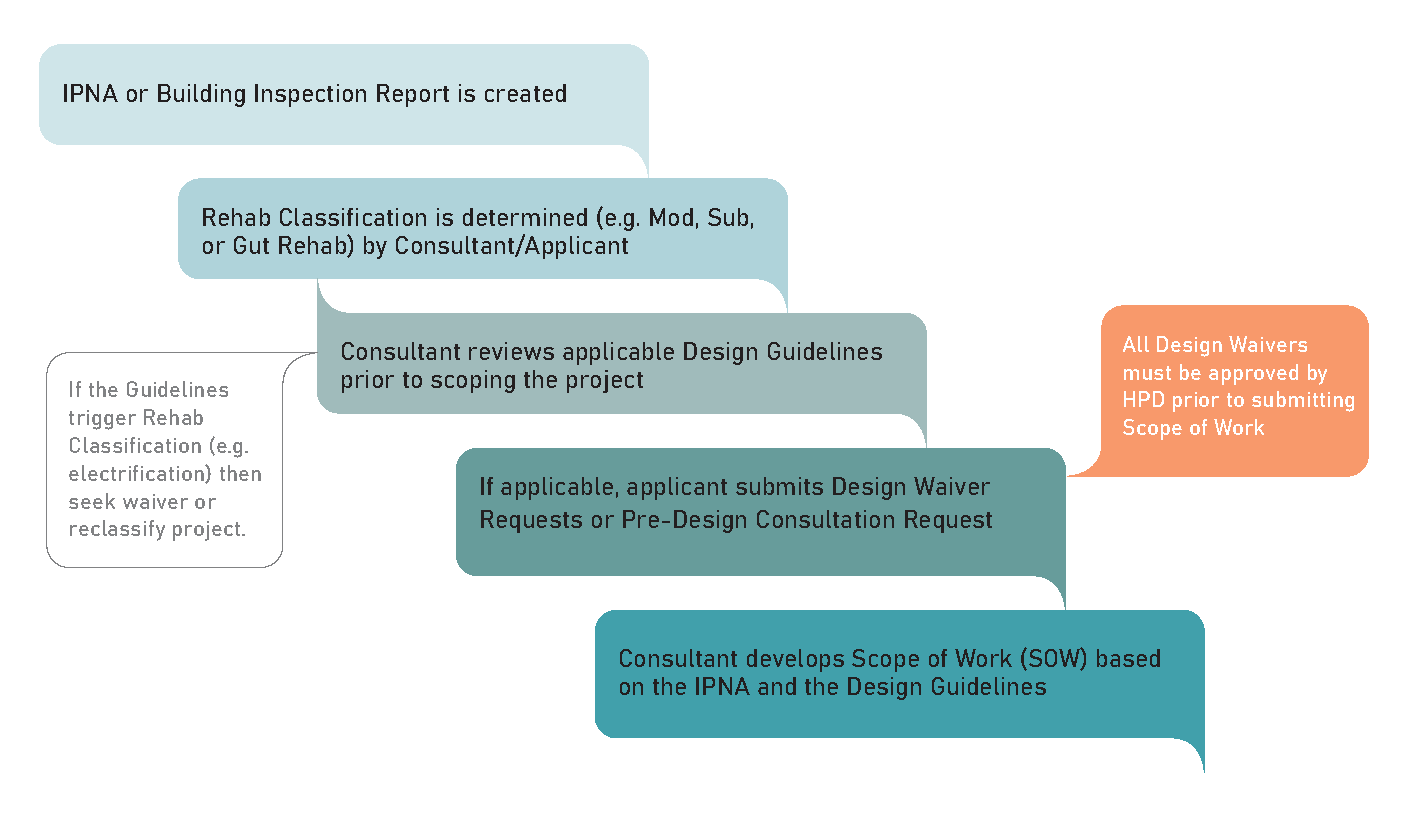
 Housing Preservation & Development311
Housing Preservation & Development311 Search all NYC.gov websites
Search all NYC.gov websites
Preservation Design
Preservation Design
HPD is committed to working toward the City’s goals of an 80% reduction in emissions by 2050, while focusing on the resiliency and health of our buildings and our residents. To achieve these goals, we have committed to fast-tracking equitable decarbonization and releasing Design Guidelines that will ensure that these goals can be met across our portfolio of projects.
The Housing our Neighbors: A New York City Blueprint for Housing and Homelessness is Mayor Adams’ comprehensive blueprint for tackling New York City’s affordable housing crisis and getting New Yorkers into the safe, high-quality, affordable homes they deserve. HPD Design Guidelines for Preservation will help New York City achieve these goals and create healthier and more sustainable homes. In addition to reducing emissions, sustainable building design can reduce energy costs for residents, improve indoor air quality, and increase residents’ health, safety and comfort.
HPD Design Guidelines for Preservation

The HPD Design Guidelines for Preservation are a major component of HPD’s Sustainability Framework. The Guidelines establish a minimum design standard that ensures that all HPD projects can meet NYC’s ambitious climate goals and laws while incorporating best practices for resiliency, health, and safety.
The document outlines mandatory baseline requirements as well as optional "reach” criteria which are encouraged, but not required. Certain mandatory requirements may be waived by HPD via a Design Waiver Request. Waiver requests must be done early in the scoping process.
All projects will be required to submit a Design Guidelines Checklist, signed by the owner/ developer and the architect of record to demonstrate that the project complies with the Guidelines.

The Guidelines are effective as of March 1st, 2023 and apply to all new HPD Preservation projects. Projects in HPD’s pipeline, with a developed scope and actively working with an assigned HPD Project Manager are strongly encouraged, but not required to comply with the guidelines, but are expected to do the necessary work to comply with Local Law 97 (for projects >25,000 square feet not subject to the Guidelines, see the resources below). Note that the Guidelines are designed to help applicants comply with the City’s sustainability laws and meet the threshold requirements of the utility and state incentive programs.
Download the HPD Design Guidelines for Preservation
- Design Guidelines for Moderate Rehabilitation
- Design Guidelines for Substantial Rehabilitation & Gut Rehabilitation
Process Guides
Using the Guidelines to Scope a Project
The Design Guidelines, in conjunction with HPD's Specification for Rehabilitation Projects, are a critical part of the HPD scoping process and should be considered prior to scoping. The diagram below outlines how the Guidelines fit into the process:

Additional Resources
- Rehab Classification Matrix and Definitions
- Master Guide Specifications for Rehabilitation Projects
- Preservation Design Guidelines Workbook (for Moderate and Substantial/Gut Rehabs)
- Design Guidelines FAQs
- Clarification on Electrification Requirements
- For projects subject to LL97 but not subject to the Guidelines, refer to:
Note: HPD recognizes that the Design Guidelines cannot address all scenarios. Pertinent laws, rules, regulations, and codes take precedence over the Guidelines in the event of a conflict. When unique or special circumstances, extraordinary market conditions, or special community characteristics necessitate deviation from any aspect of the Guidelines, the development team must submit a request for a waiver and explain project constraints and the rationale behind design decisions. For efficiency, it may be necessary to schedule a preliminary Design Consultation meeting with representatives from HPD Program, the Sustainability Division, HPD Building and Land Development services (BLDS), and the development team
Other Resources referenced in the Guidelines:
- HPD’s Building and Land Development Services webpage: on this page you will find additional resources as well as checklists and documents required to submit to BLDS.
- HPD Sustainability webpage: on this page you will find information about HPD’s sustainability protocols, policies and programs that are referenced in the Guidelines, including Enterprise Green Communities, Solar Where Feasible, incentive programs, trainings and other resources.
- Green Communities Trainings: on this page you will find information about Green Communities Trainings.
Trainings


